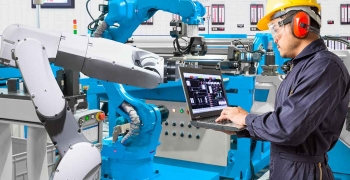As a young boy growing up in rural Orissa, my family, like most, had a few ground rules to keep us kids in check. We were five siblings and being part of a large family meant that we all had to rise early, help around the house, and walk three kilometers to get to school every day. There was one rule, however, that was immutable in our household, and it revolved around our academic performance: “never be second”. Our parents knew that my siblings and I had the potential to be at the top of our class, and they demanded no less. Even today, when I look back at my career and achievements, I have to thank the dogged pursuit of excellence that was drilled in to me, so early on in my life. I see a lot of that same drive, diligence, and motivation in today’s startup culture. Founders of these companies often have that familiar glint in their eye that hints at burning ambition and a willingness to do whatever it takes to see their ideas bear fruit. A lot of the young men and women who have founded their own companies are clearly willing to go to any length to turn their ideas to reality, without relying on the support–both infrastructural and often financial–that larger corporations can provide. As of 2016, India was host to nearly 19,000 technology-based startups, and ranks third, globally, in the number of incubators and accelerators. The startup sector has given traditional companies a run for their money with the result that even established organizations are now looking at ways to innovate and think outside the box, by imbibing some of that mythical ‘startup culture’.
While this gives me great hope for the future of Indian business, it is a matter of serious concern that startup hubs across the country are firmly ensconced in urban areas. And although some city slickers may forget it, India remains a predominantly rural country. Approximately 70% of our population live in villages, so the fact that opportunities are mostly restricted to already over-crowded, large cities, while villages languish, is troubling. Putting aside socio-economic concerns, I strongly believe that growing up in an environment of scarce resources and limited means, breeds a kind of hard-won resourcefulness, creativity, and bootstrapping ability in people, which is seldom found elsewhere. My siblings and I are living testimony to this fact. As we excelled academically, our father’s only response was to ask, “So what’s next?” goading us to go further, deeper, and higher than he ever could. The hunger to learn and expand my knowledge led me to obtain a degree in aeronautical engineering from Anna University, Chennai, a post graduate degree in aerospace engineering from the Indian Institute of Science, Bangalore, and a PhD from the Indian Institute of Technology, Bombay. But even today, as the CEO of a top-tier engineering services firm, I can hear my father’s words echo in my mind, never letting me rest on my laurels and always demanding, “So what’s next?”. It is a philosophy that will stay with me forever. I credit a large part of my success and leadership style to the invaluable lessons I learnt as a boy–extract the maximum value from the little you have at your disposal, use creativity and innovation to solve problems, and firmly believe that challenges only exist to be overcome. These values dominate village life and the young people that grow up in villages are hardy, tenacious, and inventive in a way that people from more privileged backgrounds are often not.
At LTTS, I have sought, in my own way, to inculcate these values in my colleagues. I push them to find solutions even when the odds are overwhelming, to innovate and see what others cannot, and to break out of the rigid hierarchies and siloes that so often plague large enterprises. I am proud to say that today, innovation is a central pillar of our organization’s culture and has done wonders for our performance and growth. We recently partnered with NASSCOM for a joint initiative called CoE-IoT, between the Department of Electronics and Information Technology (DeiTY) of the Government of India, and ERNET. This initiative benefits academic institutions and IoT startups by providing access to LTTS’ Center of Excellence (CoE)—a physical infrastructure site equipped with multiple technologies that serves as a colocation, design, prototype, and incubation space to test and validate various platforms. The CoE-IoT also helps startups by connecting them with other enterprises, providing mentoring and training, and even giving them access to funds and technologies. Our mission has a single objective: to support deserving candidates with great ideas but without the funds to make these a reality.
Cognizant of the vast potential of India’s rural youth, the Government has pursued several other commendable initiatives designed to empower and support the country’s rural youth in their business ventures. Programs such as the Deen Dayal Upadhyay Swaniyojan Yojana by the rural development ministry will be backed by MUDRA Bank loans, innovative credit linkages, and self-help groups. The Government also aims to provide Internet connectivity to all villages as part of the Bharatnet project. With affordable Internet access, people in villages can be part of an information super-highway, and this may be just the impetus required to fire up the rural start-up movement. India has always been a challenging market. Our problems are unique and our coping mechanisms are even more so. But with the right support and the right tools, I am confident that India’s rural youth can infuse the country’s economy with new blood and fresh ideas for a Startup Revolution 2.0. The environment is ripe for a homegrown, quintessentially Indian ‘Bharatpreneur’ who will emerge to solve Bharat’s problems. We have always had the talent, the ability, and the drive to become the technology powerhouse of the world. Now we are bringing this talent out into the open and presenting them with opportunities. I am confident that it is simply a matter of time before they rise to the occasion and take the country to new heights.




